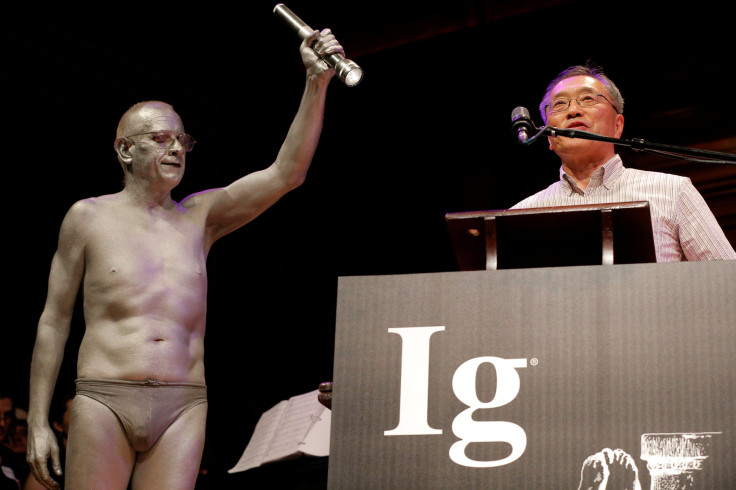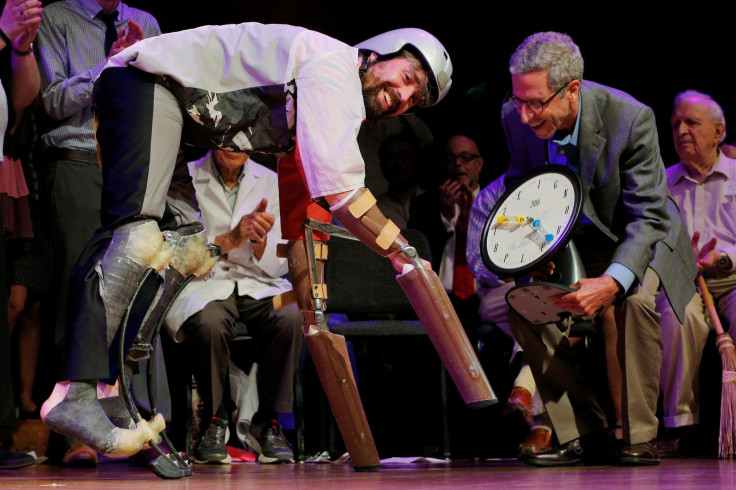Ig Nobel Prizes 2016: Volkswagen, Personality Of Rocks, Asking Liars About Lying, Alpine ‘Goat Man’ And Others

So far as spoof awards go, the Ig Nobel Prizes have a somewhat special place, handed out to people whose “accomplishments” are best reflected in the name of the magazine that started the awards — the Annals of Improbable Research. On Thursday night, an award ceremony, held at the Sanders Theatre in Harvard University, honored the recipients for 2016.
Perhaps the best-known awardee Thursday night was German car manufacturer Volkswagen, which was handed the Ig Nobel for chemistry, “for solving the problem of excessive automobile pollution emissions by automatically, electromechanically producing fewer emissions whenever the cars are being tested.” No one from the company attended the ceremony to collect the prize, however.
Another winner not present to receive his award was the late Ahmed Shafik of Egypt, who studied “the effects of wearing polyester, cotton, or wool trousers on the sex life of rats, and for conducting similar tests with human males.” His studies, which were published in journals European Urology and Contraception over 20 years ago, were awarded the reproduction prize.
A more recent study that won the Ig Nobel for psychology was a 2015 paper by a group of researchers from Belgium, Canada, Germany, the Netherlands and the U.S., who asked “a thousand liars how often they lie, and for deciding whether to believe those answers.”

Among other luminaries were the recipients for the biology Ig Nobel, two British men who won the award jointly. Charles Foster spent time “living in the wild as, at different times, a badger, an otter, a deer, a fox, and a bird.” Compatriot Thomas Thwaites created “prosthetic extensions of his limbs that allowed him to move in the manner of, and spend time roaming hills in the company of, goats.” Books by both men about their experiences were published this year.
But the prize for literature went to a Swedish book published in 2015, written by Fredrik Sjöberg. An autobiographical account in three volumes, “En Flugsamlares Vag” (The Path of a Fly Collector) describes his “pleasures of collecting flies that are dead, and flies that are not yet dead.”
The full list of awards, which include a study in perceiving the world while bending over and looking at it between your legs, as well as another on the personality of rocks, is available on the website of the science humor magazine.
The awards, in their 26th year now, are handed out by real Nobel laureates. This year’s Nobel Prize ceremony will take place two weeks from now.
© Copyright IBTimes 2024. All rights reserved.











